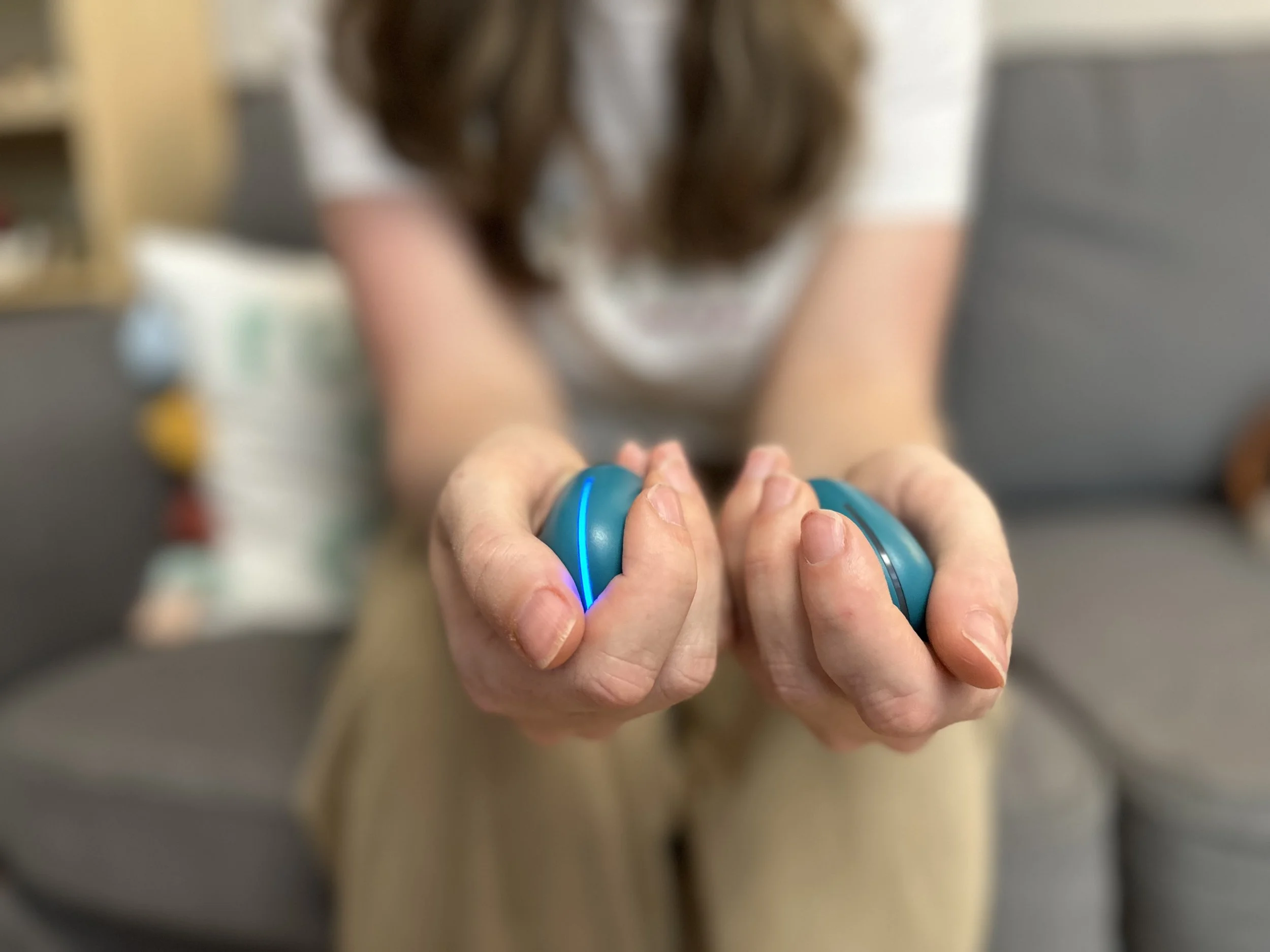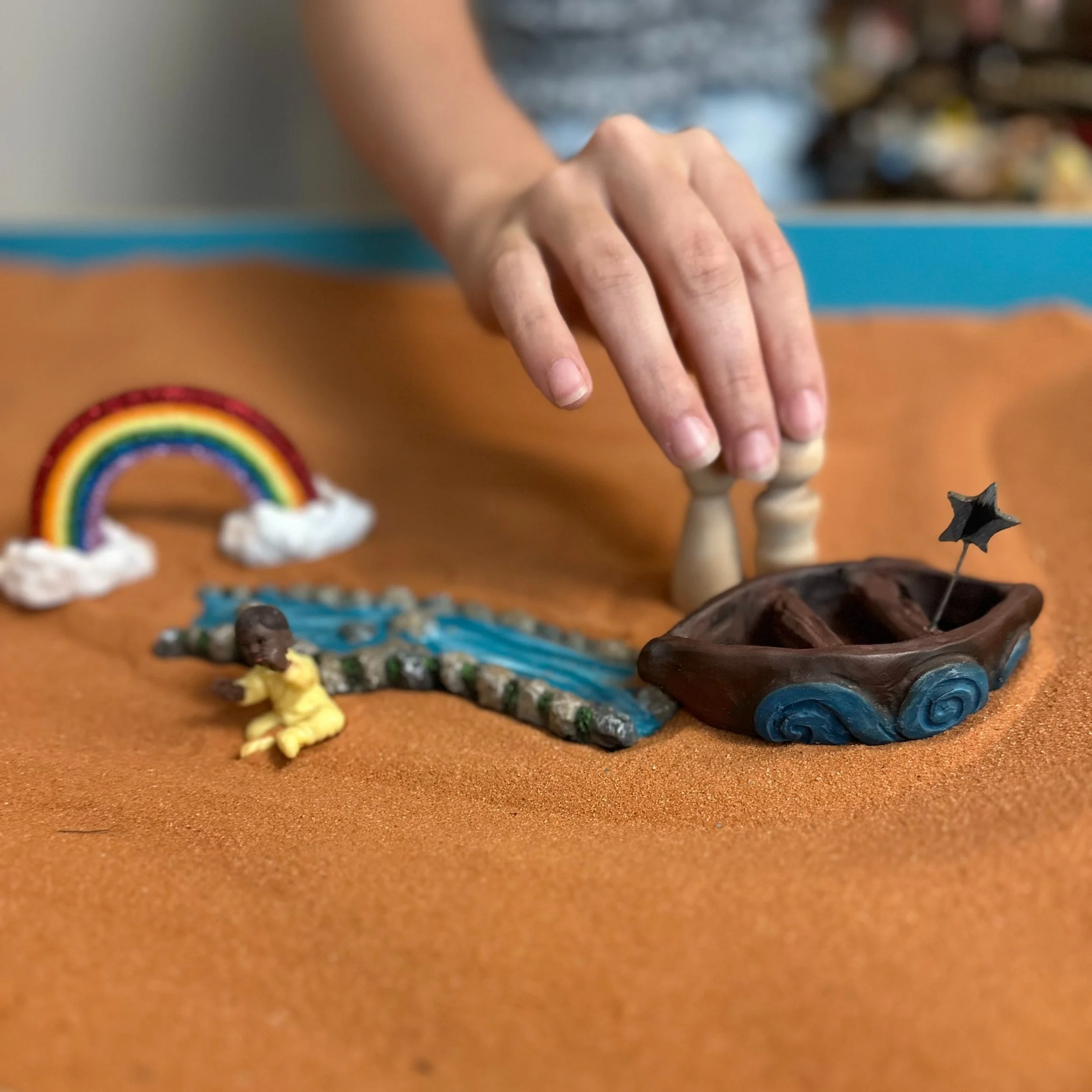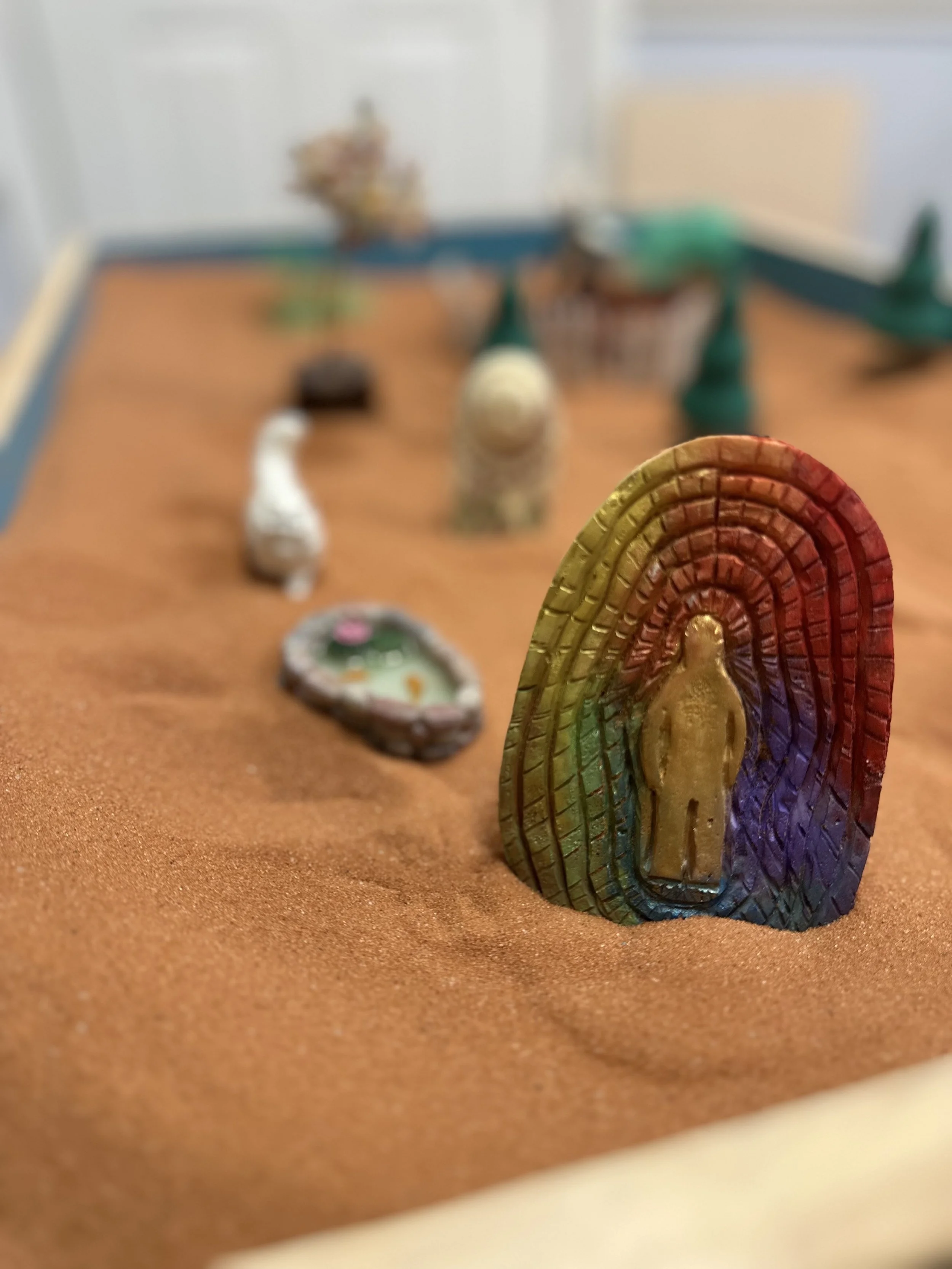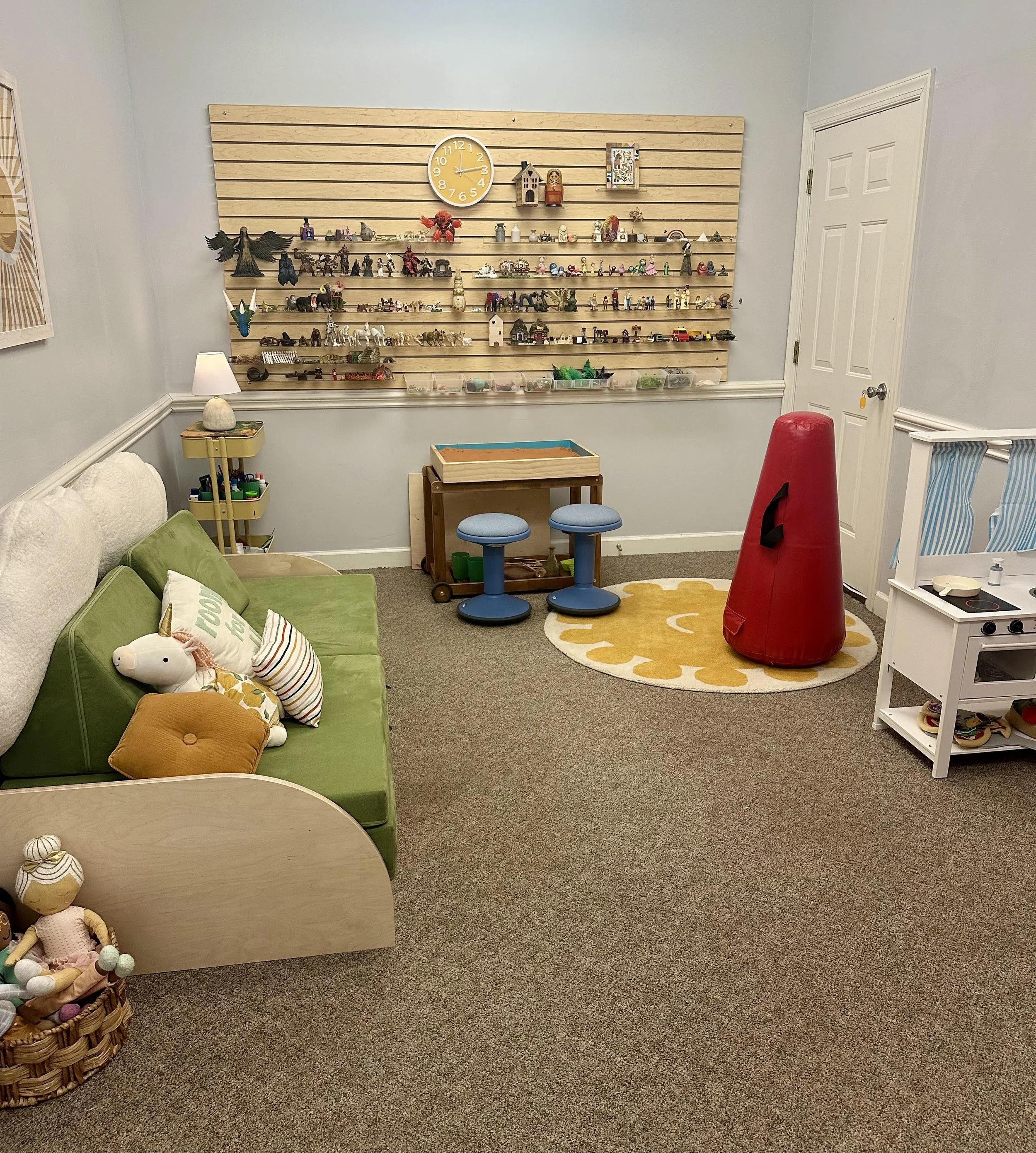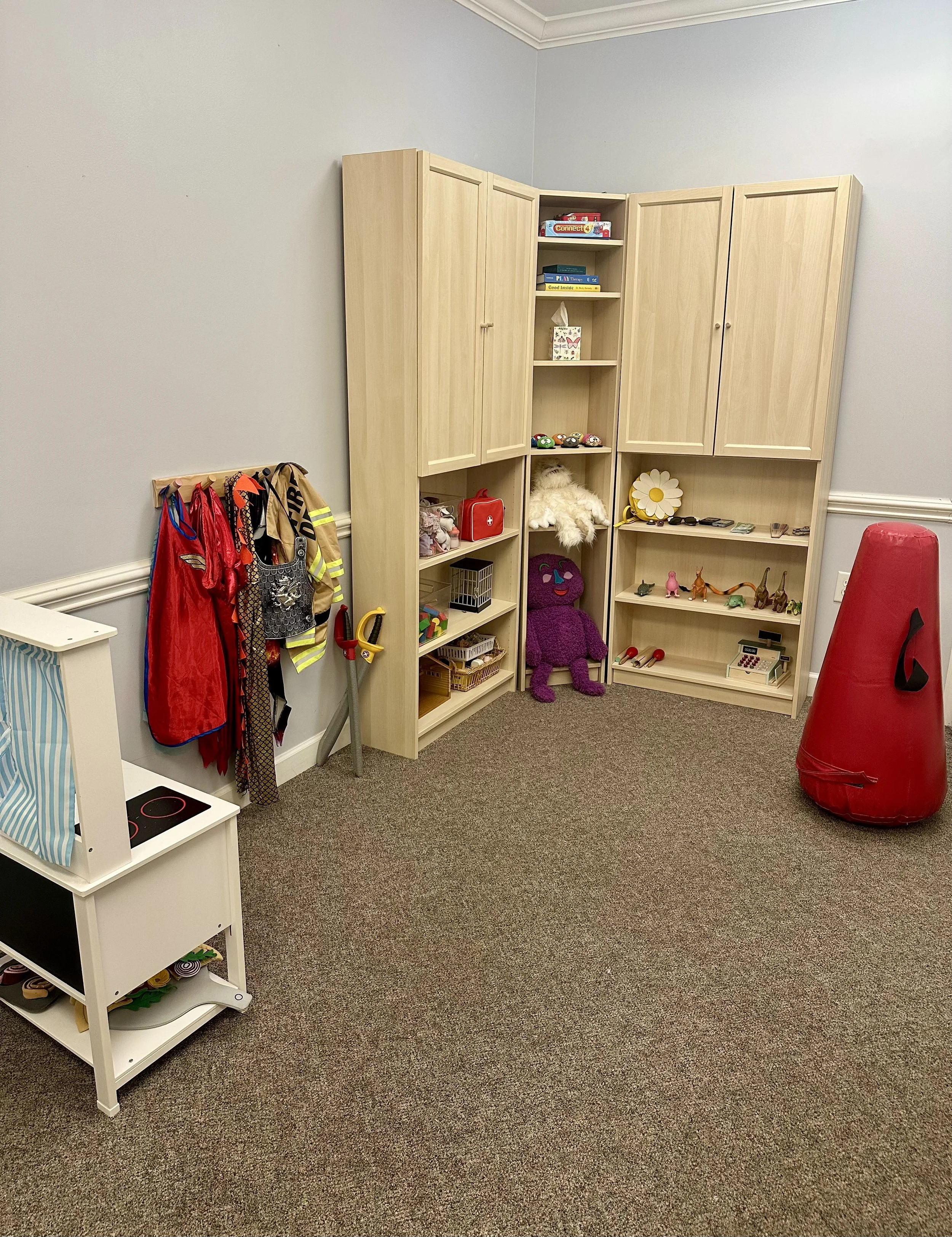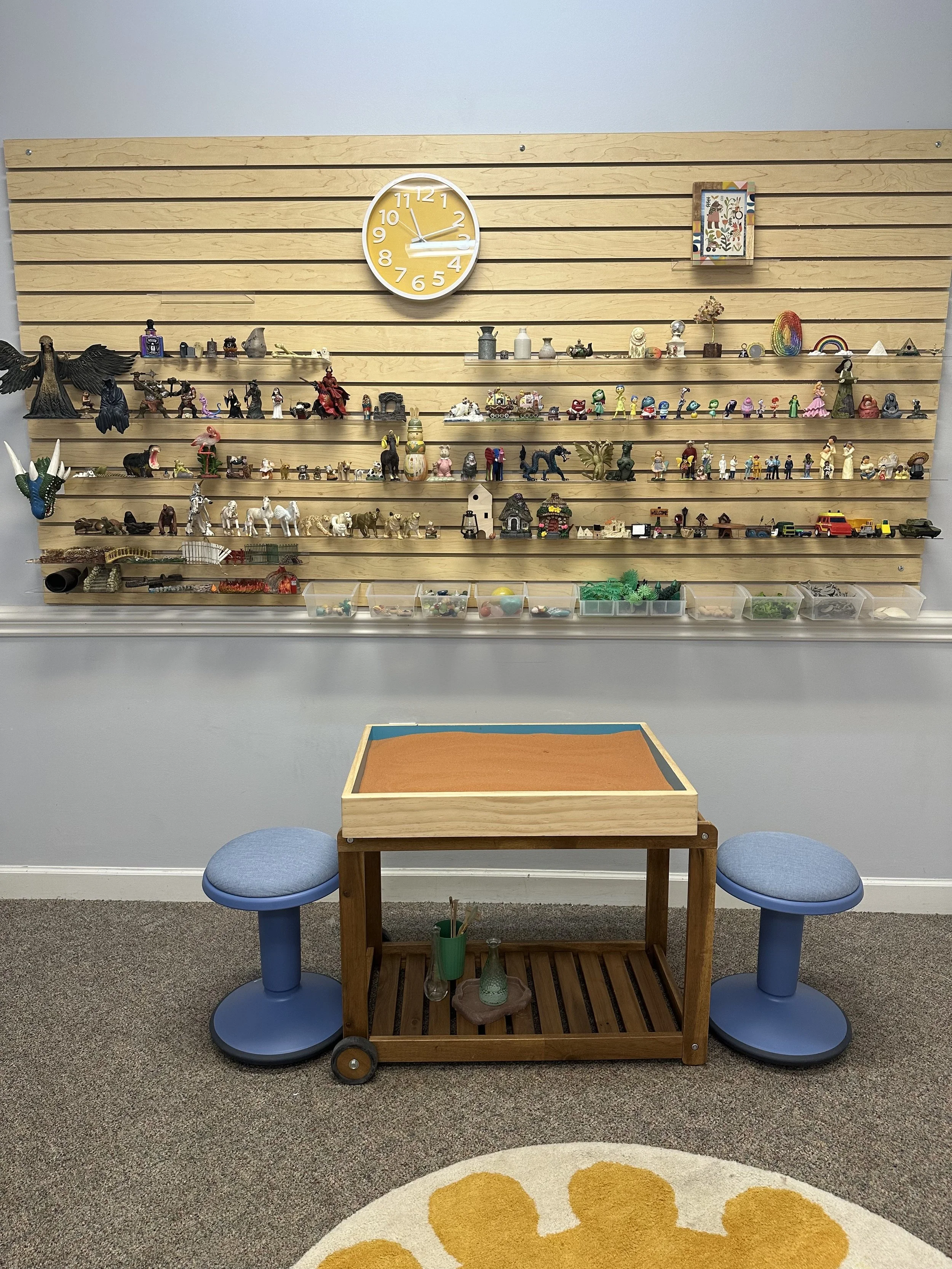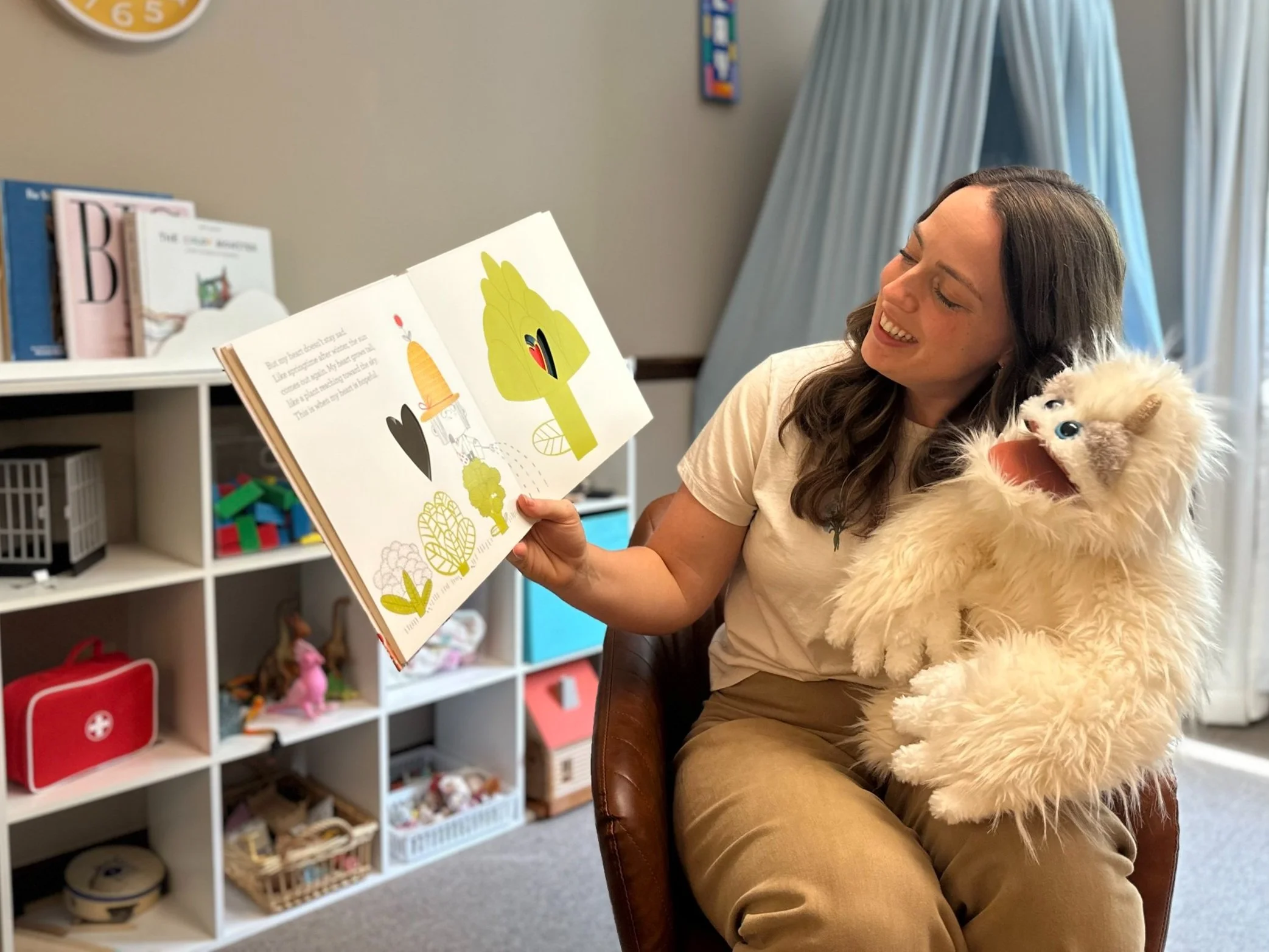
Child and Adolescent Trauma Therapy in the University Area of Charlotte
Supporting Growth, Resilience, and Healing
Your child deserves to enjoy their childhood without the added pressure of anxiety or past trauma. You want them to thrive in a carefree environment where they can fully experience the joys of being little.
As your teen navigates the journey towards independence, you want them to explore their new freedoms while remaining grounded and secure. Instead of feeling overwhelmed or stuck, you hope they can move forward confidently into the next stage of their life.
As a play therapist, I support children, teens, and their families in strengthening connections and enhancing their sense of safety. With extensive training in play therapy and sandtray therapy, I meet children and teens at their developmental level to foster growth and healing.
“Regulated, connected kids who feel safe behave well”
Methods for Children and Teens
Play Therapy
Play is the natural language of children. Discover how this approach can help them express themselves and work through challenges in a supportive environment.
EMDR
EMDR can be adapted for children and teens to help them process trauma and distress. Art, play, and sandtray can all be incorporated into EMDR to support younger clients.
Sandtray
Sandtray therapy provides a creative and engaging way for children and teens to express and explore their emotions. Learn how this hands-on approach can help them uncover insights and foster healing.
Common Questions
-
I work with children beginning at age 3 to young adults.
Children (3 years and older) will enjoy meeting in my play therapy room that is full of art supplies, toys and movement items. Some children, tweens and teens will prefer to meet in my more traditional office space without all of the toys.
-
Absolutely. Even if your child is reluctant to talk about their feelings, they can still benefit from counseling. Many children find it challenging to express their emotions verbally, but therapy offers various ways to engage them. Techniques such as play therapy and sandtray therapy allow children to explore and communicate their feelings through creative and non-verbal means. My goal is to help your child feel comfortable and safe in my space, providing valuable support and helping them navigate their emotions in a way that feels approachable for them.
-
It’s common for teens to feel reluctant about starting therapy. To address this, we can arrange a consultation call where your teen can meet with me and discuss their concerns in a comfortable, low-pressure setting. This initial conversation can help them understand what therapy involves and how it might benefit them. Together, we can explore their needs and preferences, making it easier to find an approach that feels right for them. The goal is to create a supportive environment where they feel heard and valued.
-
You are one of the most important people in your child's life and on your child's care team. I support parents and caregivers in separate parent/caregiver sessions. This allows plenty of time for us to discuss progress and concerns candidly. Typically parent sessions are every 4 to 7 sessions, however they can be more frequent if needed.
I am also trained in Child Parent Relationship Therapy to support parents in strengthening their connection with their child. CPRT parent sessions meet weekly or biweekly.
How it works
Set up a free consultation call so that we can discuss your concerns and ensure that I am a good fit to work with you and your child.
1.
Attend parent/caregiver intake session. We will meet for the first time without your child present so that you are able to share candidly.
2.
Meet weekly for 45-55 minute sessions for your child. Every 4-7 sessions, we will have a parent/caregiver session to review progress and recommendations.


